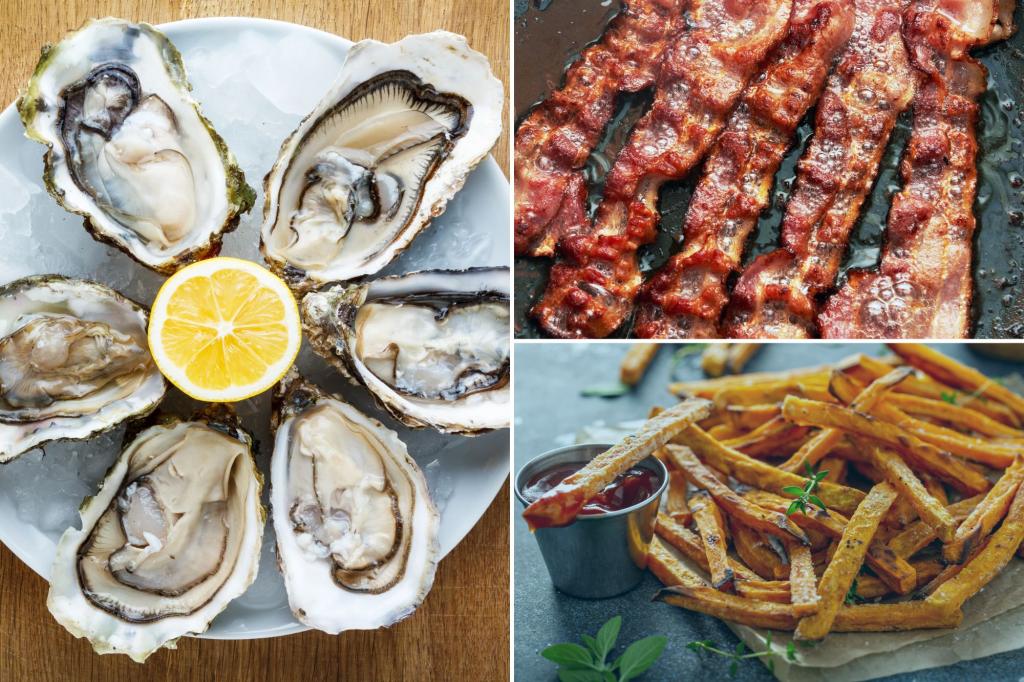The pursuit of health and wellness often conjures images of strict diets and unwavering discipline. However, a recent incident involving a personal trainer fired for indulging in a McDonald’s burger sparked a conversation about the role of occasional indulgences in a healthy lifestyle. Contrary to popular belief, nutrition experts agree that enjoying treats in moderation doesn’t necessarily derail one’s health goals. In fact, it can contribute to a more balanced and sustainable approach to healthy living. A panel of nine nutrition experts shared their own guilty pleasures, revealing a surprising range of preferences from decadent desserts to beloved chocolate brands. They also disclosed the foods they consistently avoid, demonstrating that even within the field of nutrition, individual preferences and priorities vary significantly.
The experts’ choices highlight the importance of informed decision-making when it comes to food. While some indulged in classic comfort foods, others prioritized minimally processed options. For example, Xuxa Milrose, a nutritionist at Omni Wellness, avoids oysters due to the potential risk of bacterial contamination. This cautious approach highlights the importance of understanding food safety and individual sensitivities. In contrast, Milrose embraces dark chocolate, specifically varieties with 70% or higher cocoa content, citing its antioxidant and anti-inflammatory properties. This distinction emphasizes the idea that “healthy” and “unhealthy” are not absolute categories, and the nutritional value of a food can depend on its specific composition.
The experts’ differing views on specific foods further underscore the individualized nature of healthy eating. While one expert steers clear of sugary breakfast cereals like Froot Loops, another expresses a strong aversion to fried foods. These choices reflect different priorities and interpretations of nutritional guidelines. Sarah Berry, professor at King’s College London and chief scientist at Zoe, avoids “low-fat” products, arguing that the processing required to remove fat often strips away beneficial nutrients and introduces potentially unhealthy additives. This perspective challenges the common perception that low-fat options are inherently healthier and encourages consumers to consider the overall processing and ingredient list rather than focusing solely on fat content.
Berry’s preference for occasional bacon sandwiches on white bread with butter, a quintessential British treat, further illustrates the idea that even seemingly indulgent foods can have a place in a balanced diet. This example emphasizes the importance of moderation and enjoying food for pleasure as well as nourishment. Other experts echoed this sentiment, listing their own occasional indulgences, including hot chocolate, artisan baked goods, homemade versions of takeout favorites, and traditional desserts like fruit crumble with ice cream. These choices showcase the diversity of preferences even among nutrition professionals and reinforce the message that enjoyment and satisfaction are integral components of a healthy relationship with food.
The experts’ overall consensus is that strict deprivation is not only unnecessary but can also be detrimental to long-term health goals. Rigid dietary restrictions can lead to feelings of deprivation and increase the likelihood of eventual binge eating or disordered eating patterns. Embracing a more flexible approach that allows for occasional treats can promote a healthier and more sustainable relationship with food. This perspective also acknowledges the social and emotional aspects of eating, recognizing that food plays a crucial role in creating memories, fostering connections, and enhancing overall well-being.
Ultimately, the key takeaway from the experts’ insights is that healthy eating is not about rigid rules and restrictions but about making informed choices that align with individual needs and preferences. Moderation, balance, and enjoyment are essential components of a sustainable approach to healthy living. Occasional indulgences can be part of a balanced diet and contribute to a more positive and fulfilling relationship with food. This perspective encourages a shift away from labeling foods as “good” or “bad” and instead focuses on making conscious choices that support both physical and mental well-being. By acknowledging the role of pleasure and satisfaction in healthy eating, individuals can develop a more sustainable and enjoyable approach to nourishing their bodies and minds.


